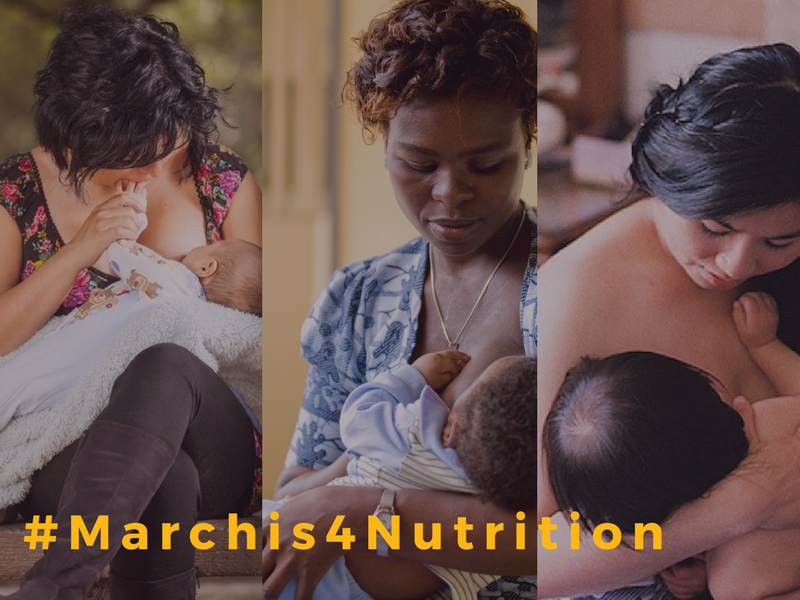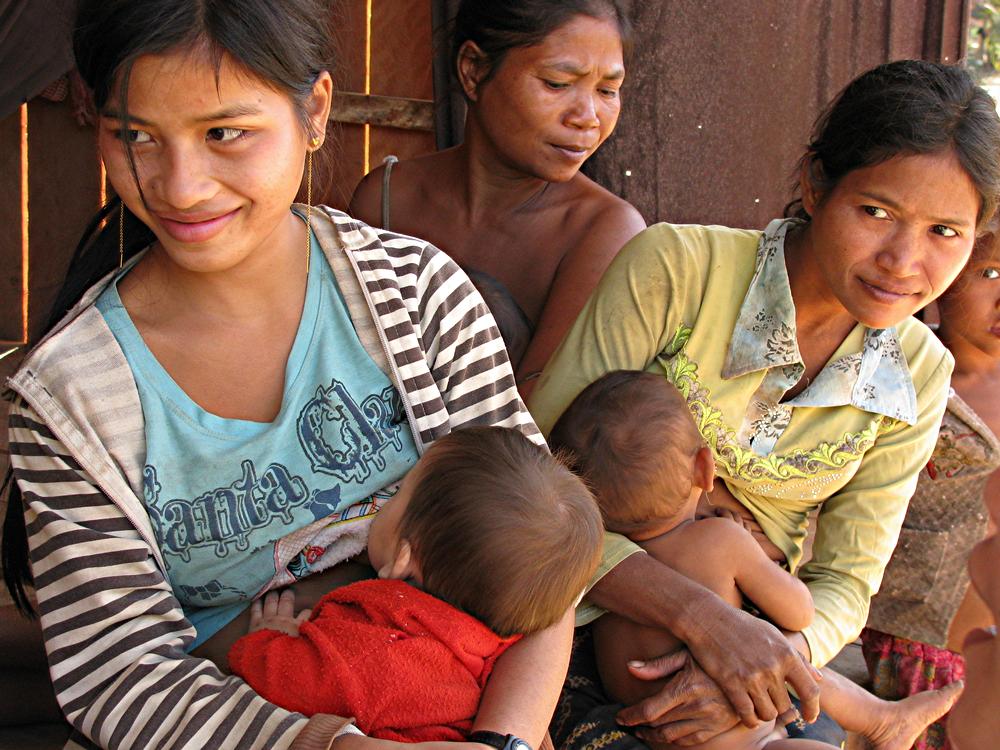#Marchis4Nutrition: What if Moms had access to the support needed to reach their breastfeeding goals?
In honor of National Nutrition Month, 1,000 Days is kicking off its annual #Marchis4Nutrition campaign to amplify the critical role the world’s mothers play in nourishing the next generation. During the next 4 weeks, we will be imagining a world in which moms have the support they need to give their children a healthy start to life. This week we’re asking:
What if moms had access to the support needed to reach their breastfeeding goals?
A world in which women receive support to breastfeed is a world in which women and children thrive. Enabling women to breastfeed for as long as they desire would result in less illness and disease, as breastfeeding plays a key protective role for infant health. Fewer children would die from diarrhea and pneumonia – two of the leading causes of child mortality globally – as well as Sudden Infant Death Syndrome (SIDS)—a leading cause of infant mortality in the U.S. If babies were breastfed early and exclusively for the first 6 months, evidence shows that over 820,000 lives could be saved each year.
And it is not just babies who would benefit from breastfeeding. For every year a mother breastfeeds, she significantly reduces her risk of developing ovarian cancer, invasive breast cancer and heart disease.
“If moms had access to the support needed to reach their breastfeeding goals, they could reduce their risk for certain cancers while providing the optimal nutrition for their children.”
– Helen Keller International’s ARCH Project
So what will it take for moms to have the support they need? From the outset, women need access to quality healthcare, including skilled breastfeeding counseling. Women need access to job-protected paid time off from work to care for their newborns and to establish breastfeeding. And women need better policies and programs that enable them to start and continue breastfeeding as long as they choose, including breastfeeding education efforts and restrictions on the unethical promotion of infant and toddler formula.
For women and children living in conflict or emergency settings, even more support is needed. Ample privacy and space, psychological counseling and assistance with attachment and positioning are critical. For some mothers, breastfeeding can even help reduce stress. But it means strengthening systems of support to do so.
“Breastfeeding is the natural diet containing all the nutrients a child needs.”
– Nutrition International’s National Program Manager, Dr. Ahsanullah Khan Bhurgri
ALL moms need support to reach their breastfeeding goals. Join the #Marchis4Nutrition conversation on Facebook and Twitter this month and tell us what you think: What does the world look like if moms have the support they needed to reach their breastfeeding goals…?
To learn more about the worldwide support needed for breastfeeding, check out the Global Breastfeeding Collective, a partnership of 20 prominent international agencies and non-governmental organizations, including 1,000 Days and led by UNICEF and WHO.



